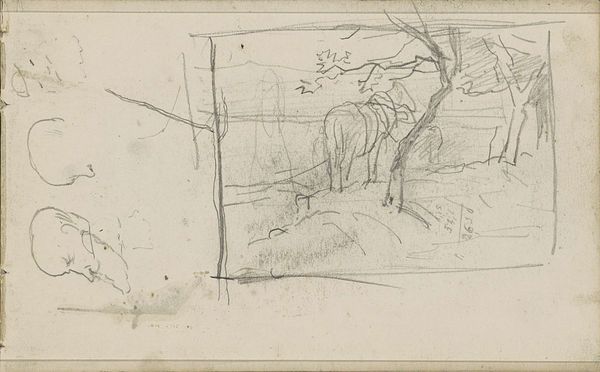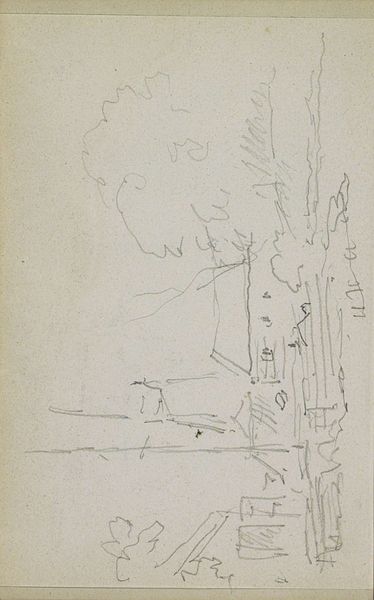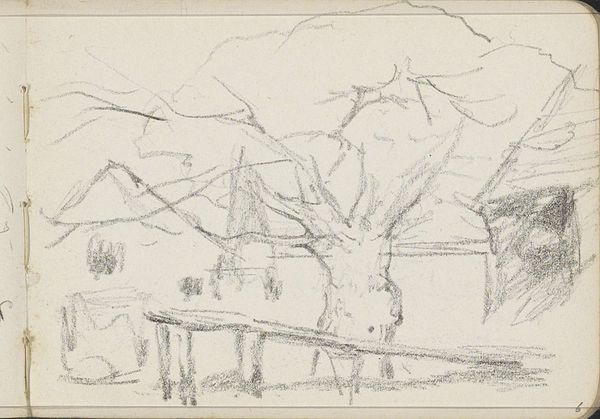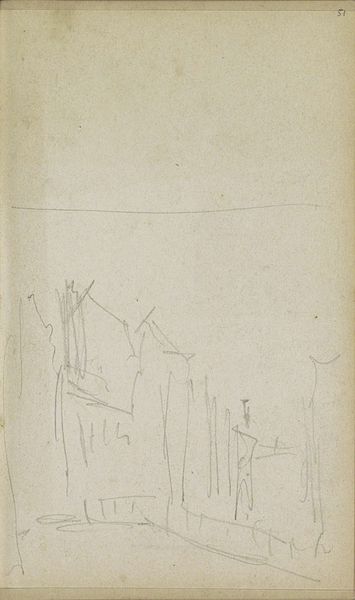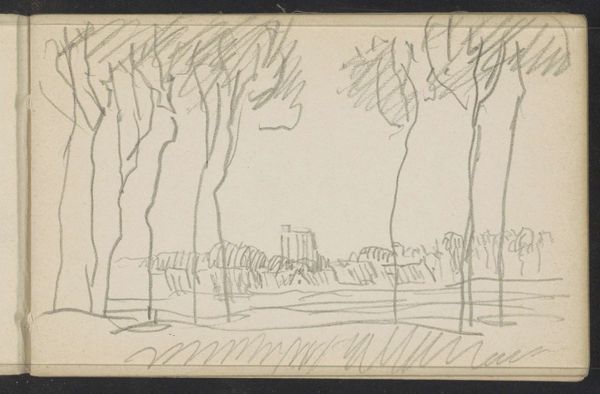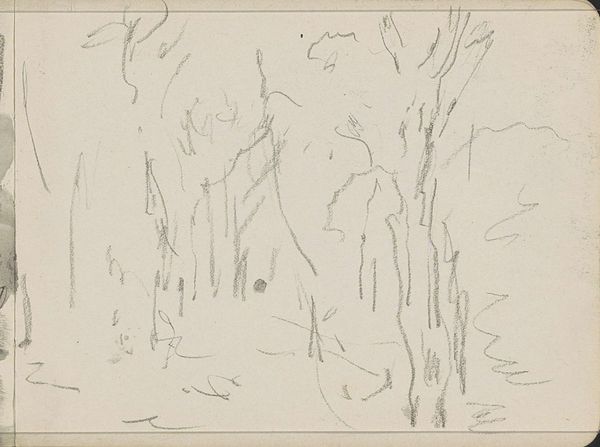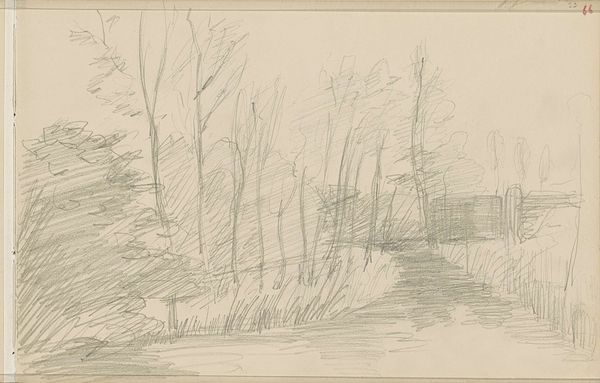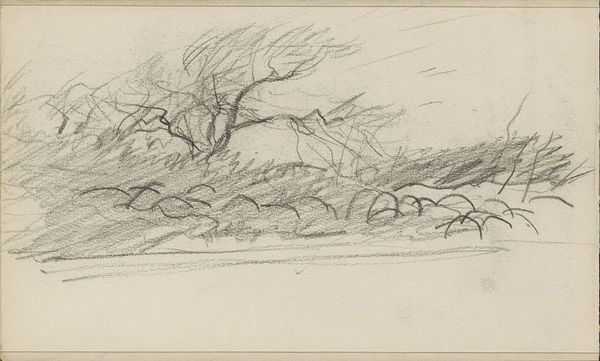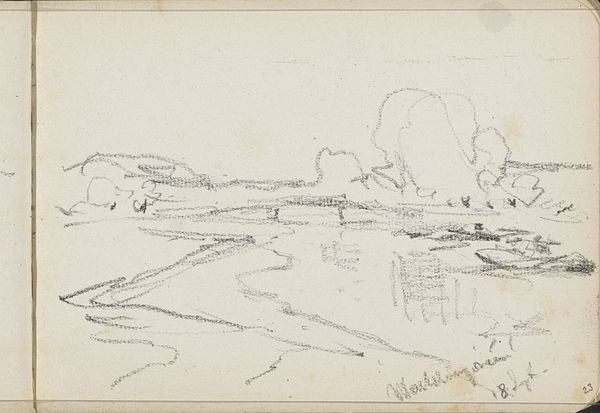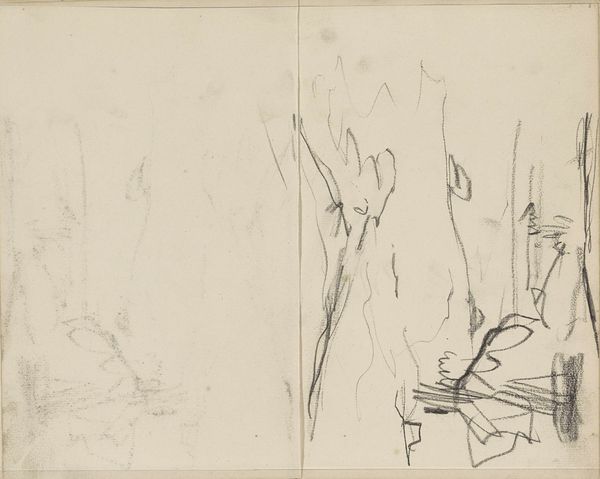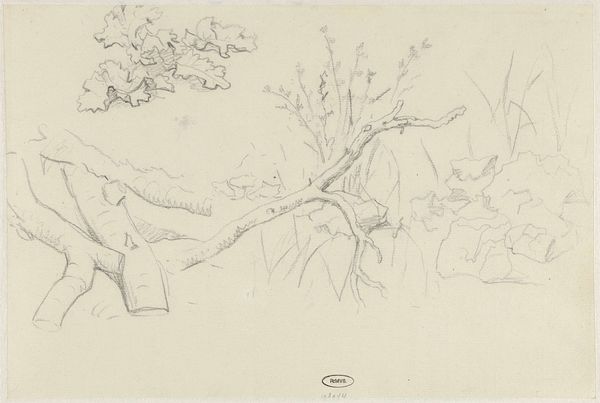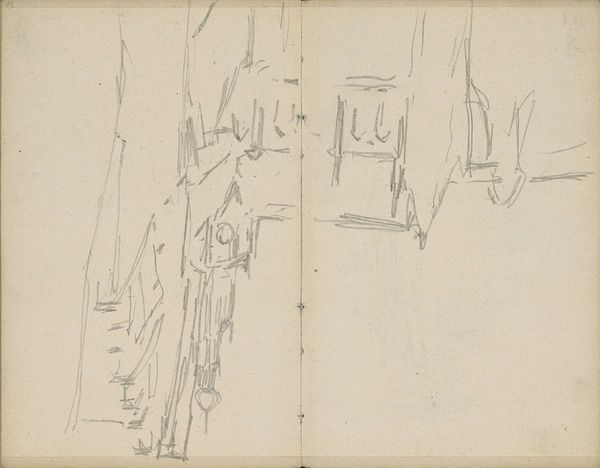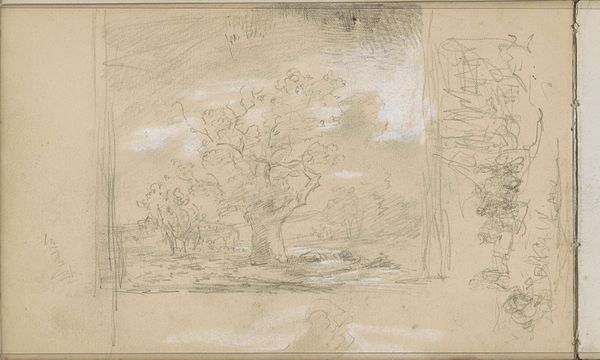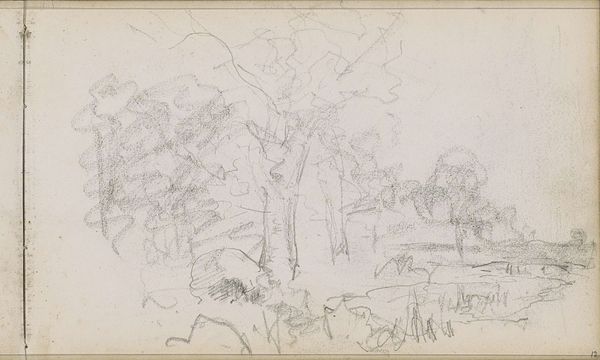
Dimensions: height 114 mm, width 159 mm
Copyright: Rijks Museum: Open Domain
Willem Cornelis Rip made this pencil sketch of trees at an unknown date. The loose strokes and unfinished quality suggest it was made en plein air, that is, outside, as part of the late 19th century desire to capture the fleeting effects of light and atmosphere. This interest in landscape coincided with growing urbanisation in the Netherlands and across Europe. Rip's sketch may therefore be seen as part of a broader cultural trend of idealising the countryside as a place of peace and escape from the stresses of modern life. The institutional history of art is relevant here. Rip would have been trained in the established academic tradition, but the sketch also hints at the influence of more avant-garde movements like Impressionism. By studying Rip's biography and the art criticism of his time, we can gain a deeper appreciation for the social and cultural forces that shaped his work. Ultimately, art's meaning is contingent on its historical context.
Comments
No comments
Be the first to comment and join the conversation on the ultimate creative platform.
